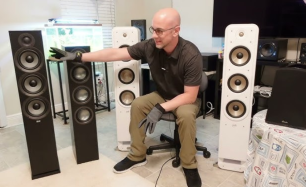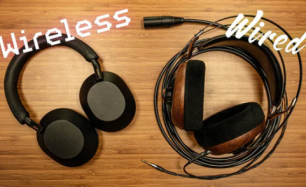4 Tips to Extend the Lifespan of Your Audio Cables
Audio cables are an essential part of any sound system, home studio, or personal listening setup. Whether you’re using them for headphones, speakers, or musical equipment, proper care ensures they last longer and maintain optimal sound quality. Damaged cables can lead to poor audio transmission, static, or even complete failure, making it important to handle them correctly.
Here are four essential tips to help extend the lifespan of your audio cables and avoid unnecessary replacements.
1. Store and Coil Cables Properly
One of the most common reasons audio cables wear out quickly is improper coiling and storage. Twisting, tangling, or bending cables at sharp angles can weaken internal wiring, leading to breakage over time.
Best Practices for Storage:
- Use the over-under coiling method, which prevents kinks and extends cable life.
- Avoid tight wrapping around objects, as this can stress the internal conductors.
- Store cables in a cool, dry place to prevent moisture damage.
- Use Velcro straps or cable ties to keep them neatly organized without excessive pressure.
Why It Works: Proper coiling reduces tension on the internal wires, ensuring they remain functional and flexible for longer.headphones.

2. Avoid Pulling or Yanking the Cable
Pulling on the cable instead of the connector when unplugging can weaken the internal connections and damage the soldering inside. Repeated yanking can also loosen the jack or port, making the connection unstable.
Best Practices for Handling:
- Always grip the connector when unplugging from a device.
- Avoid stepping on or pulling cables, especially when they’re connected.
- Keep cables away from chair wheels, pets, or high-traffic areas where they might get damaged.
Why It Works: Being gentle with your cables reduces strain on the connectors, preventing unnecessary wear and damage.
3. Use Cable Protectors or Reinforced Cables
Over time, the points where cables bend near connectors become weak, leading to fraying or breakage. Investing in cable protectors or choosing cables with reinforced stress points can prolong their lifespan.
Best Ways to Protect Cables:
- Use rubber or spring-style cable protectors to reinforce the weakest areas.
- Choose braided or reinforced cables, which are more durable than standard plastic-coated cables.
- If a cable starts to fray, apply heat shrink tubing as an extra layer of protection.
Why It Works: Strengthening the most vulnerable points of a cable prevents internal breakage and prolongs usability..

4. Keep Cables Away from Heat and Moisture
Environmental factors like extreme heat, humidity, and liquid exposure can deteriorate cable insulation and internal wiring. Keeping cables clean and dry is essential for long-term functionality.
Best Practices for Protection:
- Keep cables away from direct sunlight, radiators, or heating vents.
- Store them in low-humidity environments to prevent corrosion of the metal components.
- Avoid using cables near spilled drinks or damp surfaces.
- If a cable gets wet, wipe it down immediately and let it dry completely before use.
Why It Works: Preventing exposure to damaging elements maintains cable integrity, ensuring reliable performance over time.
Final Thoughts
Taking proper care of your audio cables ensures they last longer, deliver consistent sound quality, and save you money on replacements. By following these simple steps—storing them properly, handling them with care, reinforcing stress points, and protecting them from environmental damage—you can keep your cables in excellent condition for years to come.
Making these small adjustments will help prevent fraying, breakage, and signal loss, allowing you to enjoy uninterrupted, high-quality sound.








